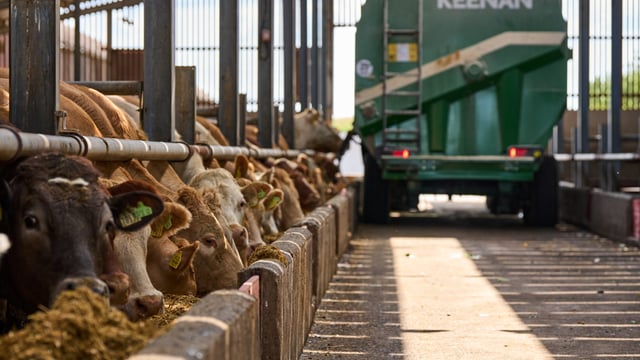Dog attacks on livestock hit 'unprecedented levels' - farm org
The frequency and severity of dog attacks on livestock has reached "unprecedented levels" and is causing immense distress and financial losses for farmers, one of the country's largest farming organisations warned today (Wednesday, May 15).
According to the Irish Farmers' Association (IFA) farmers are facing an "uphill battle" as dog attacks on livestock continue to escalate.
The IFA's national sheep chair, Adrian Gallagher, said recent attacks in Monaghan and Louth highlight the scale of the problem for farmers.
He said evidence shows that dog attacks are not only increasing but are "compounded by the inability of dog wardens and shelters to accommodate the increasing number of stray, unwanted and abandoned dogs across the country".
The IFA has now urged the government to take "meaningful action" to tackle the problem.
Gallagher believes one way it could do this is to "ensure there is adequate facilities in place" for stray dogs and for dogs whose owners who "refuse to accept their responsibilities".
Last month the Minister for Rural and Community Development, Heather Humphreys, launched a national awareness campaign to highlight to dog owners the harm that out of control dogs can do to people and to livestock.
Minister Humphreys said: "Being a dog owner is a privilege, but it comes with a lot of responsibilities.
“Dog owners must make sure their dog is under control at all times, not running wild endangering people, livestock or other dogs."
According to the government it has also introduced a number of related initiatives including:
- Increases in on-the-spot fines up to €300;
- Additional €2 million to support dog pounds;
- The establishment of the Dog Control Stakeholder Group.
While the IFA acknowledged what it described as the importance of a national media campaign it was also critical of the "level of sanctions" that have been applied.
According to the IFA national sheep chair these "do not reflect the savagery and trauma these uncontrolled dogs are causing".
Gallagher added: "The absence of a centralised database to identify ownership and those responsible for the dogs, and the lack of enforcement of licensing and microchipping, are all contributing to this persistent and escalating problem."





